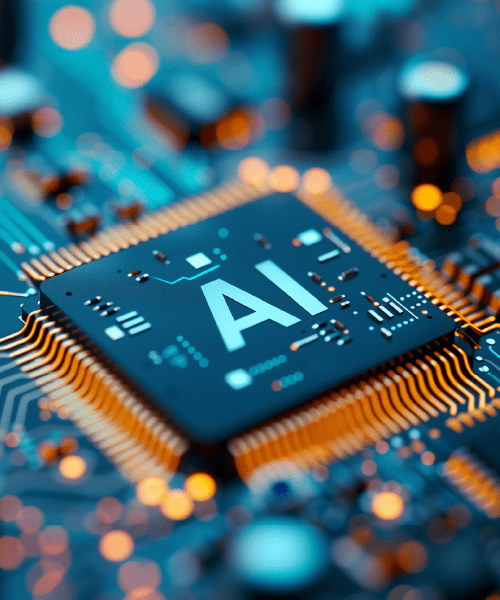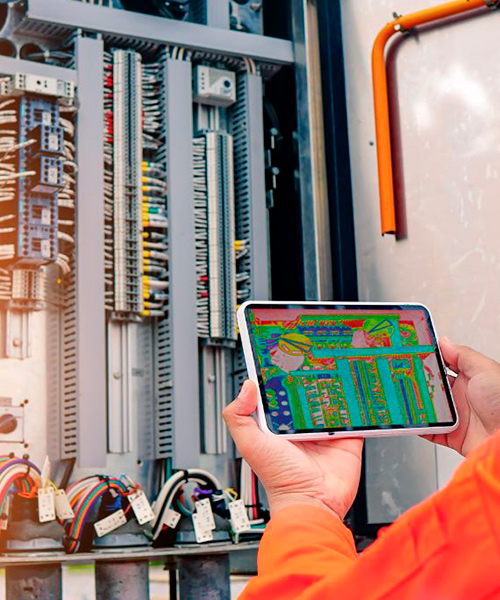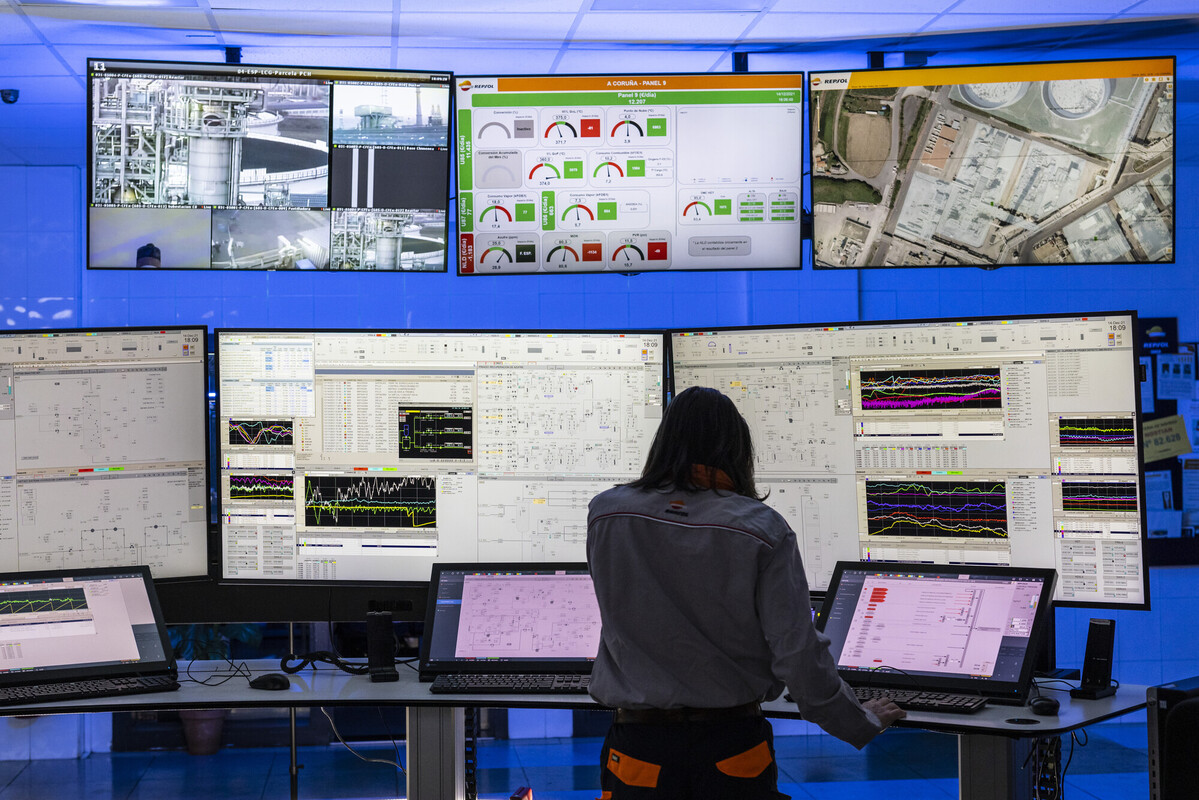LLM (Large Language Models)
LLM (Large Language Models)
Disruptive technologies in our daily lives
Disruptive technologies in our daily lives
Have you ever used a chatbot on a website to solve a question? Or noticed how product recommendations in your favorite online store seem to match your tastes? These are examples of how LLMs are transforming our daily experience with disruptive technology
What are LLMs (Large Language Models)?
What are LLMs (Large Language Models)?
LLMs (Large Language Models) are Artificial Intelligence (AI) systems designed to understand and generate human language using deep learning models. They use large volumes of data and advanced algorithms to provide solutions and create relevant content in a variety of applications, thanks to their natural language processing (NLP) and machine learning capabilities.
What are LLMs for?
What are LLMs for?
LLMs can transform industries by improving efficiency, productivity, and creativity. Some of their most noteworthy applications are:
- Customer service
Large Language Models provide quick and precise answers to queries from users. They solve technical problems, guide through complex procedures, and offer personalized assistance 24 hours a day.
- Content creation
They facilitate writing, summary of texts, and automatic translation. Media and marketing companies use them to generate high-quality content.
- Training in companies
They simulate conversations and real-world situations, creating an interactive learning environment. They are useful for training in communication and problem solving skills, preparing teams for the professions of the future.
- Research
They help researchers to find and summarize relevant information quickly. They carry out advanced searches and generate hypotheses based on existing data.
- Customization
In e-commerce, entertainment, and education platforms, LLMs personalize the user's experience with recommendations based on their preferences and behaviors.

Examples of LLMs:
Examples of LLMs:
Some of the best known are:
- GPT (Generative Pre-trained Transformer): created by OpenAI, it is a base architecture that has given rise to several versions. Its most famous evolution is ChatGPT, capable of writing, summarizing, translating, or even holding natural conversations with users.
- BERT (Bidirectional Encoder Representations from Transformers): developed by Google, it focuses on understanding the context of words in a sentence, making it especially useful for improving search engine results and reading comprehension tasks.
- Claude (Anthropic): stands out for its ability to handle very long texts, up to 100,000 tokens (equivalent to hundreds of pages), making it an ally in the review of extensive documents or complete books.
- Jurassic-1 (AI21 Labs): with more than 170 billion parameters, it was designed to perform creative writing and text generation tasks with a broad vocabulary.
- Command (Cohere): specializes in writing and analyzing texts in over 100 languages, making it attractive for global applications.
- Paradigm (LightOn): less known, but interesting because it proposes alternatives with different architectures that seek to overcome some limitations of models such as GPT-3.
In general, all these models offer APIs that allow companies and developers to integrate them into real applications: virtual assistants, search engines, customer service chatbots, analysis of legal or medical documents, and much more.
LLM-based platforms
LLM-based platforms
Large Language Models are changing the way in which we interact with technology, driving a variety of platforms and tools that adapt to different needs.
- What is ChatGPT?
ChatGPT, developed by OpenAI, is a language model designed for conversational interaction. Able to answer questions, generate text, and assist in complex tasks, it is used in customer service, education, and generation of ideas.
- What is Gemini?
Gemini, created by Google DeepMind, is an AI platform that uses LLM to generate context, assist in technical tasks, and offer contextual responses to complex questions. Its adaptability makes it useful for professionals from various industries.
- What is Copilot?
Copilot is an AI tool that optimizes productivity in professional tasks. It acts as a smart assistant, suggesting next steps and solutions based on the context, and facilitating tasks such as the writing of reports and data analysis.
- What is Alexa?
Alexa, developed by Amazon, is a virtual assistant that uses LLM to interact with users through voice commands. As well as controlling smart devices, managing calendars, and playing music, it is integrated with apps and services to offer a versatile experience.
How do large language models work?
How do large language models work?
LLMs are powered by artificial neural networks, inspired by the human brain. These networks process and generate text by analyzing language patterns to replicate human language comprehension and production with high accuracy.
LLM training process
- Data collection
Large volumes of text are collected from a variety of sources, including books, articles, websites, and other publications. This wide variety of data helps the model understand different language styles, cultural contexts, and subject matter. The quality and diversity of the data collected are critical to training a model that can generate accurate and contextually appropriate responses. - Deep learning
During this phase, complex neural networks are used to identify and learn language patterns, including grammar, the meaning of words in different contexts, and the relationships between concepts. - Parameter setting
With millions of internal variables, the model adjusts and optimizes these values to improve the accuracy and consistency of the generated text. As it receives feedback during training, it fine-tunes these parameters to minimize errors and improve prediction and text generation capability.

Advantages of LLMs in the energy industry
Advantages of LLMs in the energy industry
LLMs are revolutionizing several industries, including energy. Their ability to analyze and process large volumes of data with a high degree of accuracy and relevance is opening up new opportunities to improve business efficiency and competitiveness. Their main advantages are:
- Optimization of operations
They analyze large volumes of data in real time to identify patterns and trends, improving operational efficiency. In the energy sector, they can anticipate maintenance needs, ensuring optimal equipment performance and minimizing downtime. - Improvement in decision making
Large Language Models facilitate the analysis of complex data and provide valuable information for making strategic decisions. They help organizations to adapt quickly to market changes and optimize their operations, thus improving their adaptability. - Innovation and development of new products
They process technical and scientific information to identify research and development opportunities. They accelerate product and process innovation, helping companies stay competitive. - Improvement in communication and customer service
LLM-powered virtual assistants and chatbots provide quick responses to common queries, increasing customer satisfaction and allowing employees to focus on more complex tasks. - Regulatory compliance
They monitor and analyze changes in regulations, helping corporations ensure that they continue to comply with all applicable regulations. In addition, they facilitate the identification of opportunities to improve processes and practices, supporting proactive and efficient compliance.
Other common uses and applications of LLMs
Other common uses and applications of LLMs
Large Language Models (LLMs) have a wide range of applications in everyday life and professional settings. Some of the standouts are:
- Content creation and writing: from emails, articles, scripts, or advertising material, to creative texts such as stories or poems. Some models even suggest improvements in style and tone.
- Translation and multilingual communication: they make it possible to translate texts fluently between dozens of languages, facilitating the work of companies and people in international environments.
- Text summaries: they condense long documents, news, or technical reports into shorter, easier-to-read versions, adapting the length as needed.
- Virtual assistants and chatbots: they answer questions, solve frequent doubts, and support customer service tasks, integrating into websites or applications.
- Information analysis: they interpret large volumes of textual data, detect patterns, classify texts, and even analyze user sentiment (positive, negative, or neutral).
- Response to knowledge bases: they can search and give concrete answers in files, manuals, or corporate documentation, streamlining internal processes.
- Generation and support in programming: they help to write code in different languages, detect errors, optimize SQL queries, or even create web pages from a natural language instruction.
- Classification and organization of texts: they group similar documents or comments, something useful in research, market analysis, or brand reputation management.
In short, LLMs are used both to create (text, code, creative content) and to understand and organize information (summaries, analysis, translations, classification), becoming a key tool for professionals, companies, and private users.
Repsol and LLMs
Repsol and LLMs
At Repsol, the adoption of advanced technologies such as Artificial Intelligence is crucial for our digital transformation. Some of our key projects are:
IndesIA: driving the digital transformation
We are part of IndesIA, the first data economy and AI consortium in the industrial sector in Spain. Together with Gestamp, Navantia, Técnicas Reunidas, Telefónica, and Microsoft, we seek to promote the digitalization and optimization of processes, integrating more companies and sectors.
Commercialization of ARIA: innovation in big data
We have launched ARIA, our big data and AI cloud platform. Initially developed for internal use, it now helps other companies deploy and accelerate the use of big data and AI, demonstrating our capacity for innovation.
Training in data and IA: collaborating with ISDI
Since 2020, we have been collaborating with the ISDI digital business school to offer training in data and AI. This program has trained more than 500 employees, advancing our digital transformation and advanced data management.
Implementation of Copilot: Generative IA for employees
With the introduction of Copilot, a generative AI tool, we have succeeded not only in optimizing the work of our employees, but also in increasing their productivity. During the pilot phase, Copilot facilitated tasks such as searches and document summaries, allowing them to manage their time more efficiently. In addition, this technology has freed up more than 2 hours of work per person per week, which they can dedicate to higher-value activities, boosting their overall performance.
Generative AI Competence Center: innovation in the energy sector
We have created the first Generative AI Competence Center in the European energy sector. This center explores and maximizes the potential of generative AI to drive our digital transformation and strengthen our position as an innovation leader within the energy industry.
Have you heard about our Tech Lab?
Discover our project on fuels of 100% renewable origin developed in our Technology Lab.


